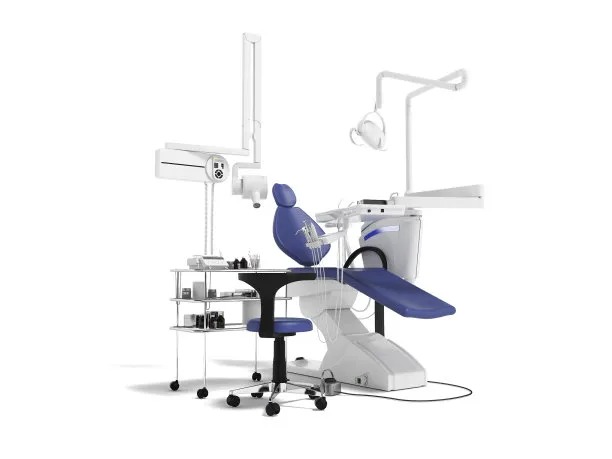Summary: Periodontal disease, a common yet often overlooked oral health issue, has significant implications for systemic health, linking it to various diseases such as cardiovascular conditions, diabetes, and respiratory infections. This article explores the intricate relationship between periodontal disease and systemic health, emphasizing four critical aspects: the biological mechanisms connecting oral and systemic health, the impact of periodontal treatment on overall health outcomes, the role of dental professionals in patient management, and the importance of patient education and awareness. By understanding these connections, modern dentistry can better address the comprehensive well-being of individuals, ultimately enhancing both oral and systemic health.
1. Biological Mechanisms Linking Oral and Systemic Health

The relationship between periodontal disease and systemic health is largely driven by biological mechanisms that facilitate the communication between the two. Inflammation is a central factor; when periodontal tissues become infected, the body releases inflammatory mediators that can enter systemic circulation. This not only exacerbates existing conditions but can also lead to the development of new health issues.
The role of bacteria is also significant. In periodontal disease, pathogenic bacteria can escape the oral cavity and migrate to other parts of the body. This bacterial translocation is associated with various systemic diseases, indicating that oral health is not isolated from overall health.
2. Impact of Periodontal Treatment on Overall Health
The treatment of periodontal disease has been shown to yield significant benefits beyond oral health. Studies suggest that effective periodontal therapy can improve markers of systemic inflammation, which is crucial for individuals with chronic systemic conditions. Regular dental cleanings and periodontal interventions can reduce the inflammatory burden on the body.
Dentists and dental hygienists play a pivotal role in recognizing and addressing the implications of periodontal disease on systemic health. Routine dental examinations that include periodontal assessments can help identify patients at risk for systemic complications. This proactive approach allows for timely referrals to medical professionals when necessary.
Patient education is a cornerstone in bridging the gap between periodontal disease and systemic health. Many patients remain unaware of the significant correlations between their oral health and other health conditions. Increasing awareness can empower patients to take charge of their health by emphasizing the need for regular dental check-ups and good oral hygiene practices.
Summary: Overall, the complex relationship between periodontal disease and systemic health highlights the need for a comprehensive approach in modern dentistry. Understanding the biological mechanisms, the impact of treatment, the role of dental professionals, and the importance of patient education is paramount in creating effective strategies for better health outcomes. This article is compiled by Vickong Dental and the content is for reference only3. Role of Dental Professionals in Patient Management
4. Importance of Patient Education and Awareness
Vickong Dental
Vickong Dental is a large medical group established in Hong Kong in 2008 by professors from well-known medical universities in Guangdong and Hong Kong, as well as medical doctors from key national '985' universities (including Master's supervisors and senior professors). The chain of branches brings together expert dentists with PhDs and Master's degrees from Hong Kong and Mainland China, committed to providing high-quality dental treatment.
"Vickong Dental Practices the University Motto of 'Healing and Serving Society,' with a Stable Operation for Sixteen Years. It Has Been honored with Hong Kong Enterprise Leaders's Choice,' and is a Global Trusted Implant Center for the Nobel Implant System. Recommended by Hong Kong Metro Broadcast and Guangdong Television, it Serves Customers from Over Thirty Countries and Regions, Gaining the Trust and Favor of Citizens from the Guangdong-Hong Kong-Macau Greater Bay Area and Surrounding Cities.

Thousands of customers' unanimous praise
The most recognized and highly recommended dental service by customers in the Guangdong-Hong Kong-Macau Greater Bay Area
We Ensure You Receive Detailed Care and Attention Here
Hong Kong standards, Shenzhen prices, Your Trusted English-speaking dentists

Vickong Dental Medical-Grade Instrument Disinfection Process
Vickong Dental Medical-Grade Instrument Disinfection Process

Vickong Dental Chain: A Warm and Comfortable Environment for Treatment






Appointment Hours

Q&A
Why choose Vickong Dental?
Vickong Dental practices the university motto 「Medicine to Benefit Society」, with each branch bringing together highly qualified dentists with doctoral and master’s degrees from Hong Kong and the Mainland, and has maintained seventeen years of steady operation。Recipient of 「2024 Hong Kong Enterprise Leaders Brand」, 「2025 Hong Kong Enterprise Leaders Brand」, a Nobel Biocare Global Trusted Implant Center, and a brand recommended by Metro Radio Hong Kong and Guangdong TV。
To date, we have served customers from more than thirty countries and regions,earning exceptionally high word-of-mouth recognition and trusted recommendations from residents across the Guangdong-Hong Kong-Macao Greater Bay Area and surrounding cities
We have eight major branches in Zhuhai、Shenzhen,and a consultation and service assurance center in Hong Kong,so you can book a free consultation at any time for any questions,which is very reassuring.
If I do not accept the quotation after the CT scan, will I be charged??
No! As long as the actual treatment has not started, you will not be charged any fees.
Will there be any additional charges during the treatment process?
No, there won’t be any additional charges. Before treatment begins, we will clearly explain the treatment plan and its corresponding fees. Only after the patient agrees and signs the consent form will we proceed with the dental service.
Can I pay in Hong Kong dollars?
Yes. Vickong Dental accepts payment in Hong Kong dollars. The amount will be converted based on the exchange rate of the day, and the applicable rate will be clearly communicated to you in advance.
Can I reschedule my appointment at any time?
Yes. Please contact us via **WeChat** or **WhatsApp** as early as possible, providing your original appointment time and details, along with your preferred new date and time slot for rescheduling.













